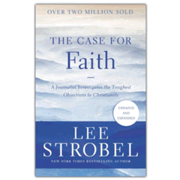
When conversations turn to faith and belief in God, especially with atheists, Christians often find themselves at a crossroads.
On one side stands a worldview grounded in Scripture and faith. On the other stands a worldview demanding reason, logic, and evidence. The tension between these positions can feel intimidating—but it doesn’t have to be.
Responding to atheist arguments biblically doesn’t mean memorizing dozens of proofs or debating like a scholar. It means engaging with wisdom, clarity, humility, and love—just as Scripture calls us to do.
As 1 Peter 3:15 (ESV) reminds us:
“Always being prepared to make a defense to anyone who asks you for a reason for the hope that is in you; yet do it with gentleness and respect.”
In this article, we’ll explore how to biblically and thoughtfully engage with atheist arguments. We’ll explore the limits of atheistic reasoning, contrast worldviews, and provide you with practical tools to respond with both truth and grace.
Understanding Atheist Claims
Atheism often claims to be grounded purely in rationality, evidence, and logic. Many atheists view their position as the “default” stance: they don’t believe in God simply because they find no sufficient reason to.
But a closer look raises important questions.
Atheists rely on logic and reason to interpret the world. However, they rarely stop to question where reason itself comes from. If we live in a purely material universe governed only by physics and chemistry, how did something as immaterial as logic arise?
This raises deeper questions:
- Can atheism truly account for the very tools it uses to deny God?
- Does the atheist worldview offer satisfying answers to life’s biggest questions—meaning, morality, purpose, and origin?
The Christian can kindly invite the atheist to reflect on whether a worldview without God can fully explain the human experience.
The Atheistic Demand for Evidence

One of the most common atheist arguments is: “There is no evidence for God.”
This statement usually comes from a worldview that demands tangible, empirical proof—the kind found in scientific experiments or physical observation.
But is that the only kind of valid evidence?
Atheists often operate from a naturalistic epistemology—a belief that all knowledge must be derived from nature and sensory experience. In other words, if you can’t test it, touch it, or measure it, it’s not real.
This view, however, is self-limiting. Many things we deeply value—like love, justice, morality, and beauty—are not physical, yet they are profoundly real.
The Bible teaches that faith is not blind belief, but trust in what is true yet unseen (Hebrews 11:1). Faith is trust based on evidence and the character of God—not mere wishful thinking.
It invites people to see beyond the material—to understand that the visible world points to an invisible Creator (Romans 1:20).
You might also briefly point to philosophical evidence for God’s existence, such as:
- The cosmological argument (the universe had a beginning and requires a cause).
- The fine-tuning argument (the precise constants of the universe suggest design).
- The moral argument (objective morality points to a transcendent source).
By contrasting naturalistic evidence with biblical faith, you can help others see that not all truth is testable in a lab.
The Challenge of Epistemic Foundations
Atheists often argue from reason, but they seldom explain its origin or reliability.
Where does logic come from in a godless universe? Why should we trust our brains—organs shaped by evolution and survival—to lead us to the truth?
Without a transcendent source, atheism struggles to explain:
- Why logic is universally binding.
- Why morality exists beyond social convenience.
- Why people across cultures feel a longing for something greater.
- If everything is material, where does consciousness come from? Why do we feel guilt, hope, or love?
As Christian philosopher Alvin Plantinga argues, a purely naturalistic worldview undercuts trust in human reason itself.
These are powerful questions to raise in conversation—not as accusations, but as invitations to think deeper.
Strategic Engagement Points

Here are some thoughtful strategies to respond biblically without becoming argumentative:
1️⃣ Seek Dialogue, Not Debate
Avoid combative tones. Instead, ask curious, open-ended questions like:
“What do you think the purpose of life is?” or
“Do you think reason is a reliable guide to truth in a random universe?”
2️⃣ Expose Inconsistencies Gracefully
For example, ask:
“If morality is subjective, why do we all agree that some things are truly wrong—like child abuse or murder?”
3️⃣ Use Illustrations and Analogies
Stories and analogies make abstract concepts clearer.
Try saying:
“If you saw a painting, would you assume there was a painter? Why should the universe be any different?”
You might also add:
“If you found a coded message inside a book, would you assume it wrote itself? Yet the DNA inside every living cell contains complex information—where did it come from?”
4️⃣ Emphasize Shared Humanity
Connect on emotional and moral grounds. Many atheists reject God not purely for logical reasons, but because of emotional wounds or life experiences.
Be sensitive to the possibility of emotional objections hidden beneath intellectual ones.
The Role of the Christian Worldview
Unlike atheism, the Christian worldview offers a coherent and comprehensive explanation of reality. It makes sense of:
- Reason: Because we are made in the image of a rational God (Genesis 1:27).
- Morality: Because God is holy and has written His law on our hearts (Romans 2:14-15).
- Love and Purpose: Because God designed us for relationship with Him.
Faith in Christ brings together both head and heart. It’s not irrational; it’s supra-rational—transcending but not contradicting logic.
By pointing to Christ, Christians show how God gives ultimate meaning to human dignity, suffering, and salvation.
Practical Approaches for Engagement
Here’s how to put it all into practice:
? Be Respectful
Never mock or belittle atheist perspectives. Treat others with dignity as fellow image-bearers of God.
? Ask Foundational Questions
Instead of offering a long list of arguments, ask: “On what basis do you believe reason and morality are reliable?”
? Use the Bible Confidently
God’s Word doesn’t need defending like a fragile thing. Trust that it speaks powerfully and clearly.
? Avoid the “Proof Trap”
Many atheists want Christians to play by their rules. But not everything that matters can be “proven” in a lab—especially not love, justice, or the soul.
? Point to Christ, Not Just Concepts
The goal isn’t to win arguments, but to reveal the beauty and truth of the Gospel.
Frequently Asked Questions (FAQs)
Q: What if I don’t know how to answer a tough question?
A: Be honest. Say, “That’s a great question—I’ll look into it.” Humility often opens more doors than a slick answer.
Q: Can someone come to faith through logic alone?
A: Logic can help remove barriers, but faith is ultimately a gift from God. Our job is to speak truth in love and trust the Holy Spirit to work (John 16:8).
Q: Should I use the Bible with someone who doesn’t believe in it?
A: Yes. God’s Word is powerful whether someone believes it or not (Hebrews 4:12). Share it with confidence and care.
Q: How can I avoid getting defensive when challenged?
A: Focus on listening well, asking good questions, and trusting God for the results. Remember, you are an ambassador of Christ, not a warrior in a debate.
Conclusion

Engaging with atheists about faith is not about winning debates—it’s about winning hearts.
By understanding their perspective, asking thoughtful questions, and confidently sharing the truth of Scripture, you can be a compelling and compassionate witness.
Don’t be discouraged if you don’t see immediate results. Seeds take time to grow.
Keep praying, keep learning, and keep pointing people to the One who is the way, the truth, and the life (John 14:6).
Affiliate Disclaimer
This post contains affiliate links. If you click on one of the links and make a purchase, I may receive a small commission at no extra cost to you. I only recommend products I truly believe in and think will be beneficial to my readers. Thank you for supporting Biblical Christianity!
Books for Deeper Study:
Case for Faith: A Journalist Investigates the Toughest Objections to Christianity
By Lee Strobel
How do you believe in a God who permits evil to happen, leaves prayers unanswered, and allows the church to engage in questionable practices? Tough questions demand convincing answers. Join Strobel as he challenges philosophers, theologians, and believers to defend their faith. This updated, expanded edition features two additional chapters and a new discussion guide. 320 pages, softcover from Zondervan.
Cold-Case Christianity: A Homicide Detective Investigates the Claims of the Gospels / Revised edition
By J. Warner Wallace
How do you convince a skeptic of the validity of the Gospels’ claims about Jesus? You put an evidence-seeking homicide detective on the case! This updated and expanded edition of Wallace’s bestseller now includes 250 fresh illustrations, cross-examination questions, a revised foreword from Lee Strobel, and the author’s testimony of his conversion from atheism to faith. 336 pages, softcover from Cook.


